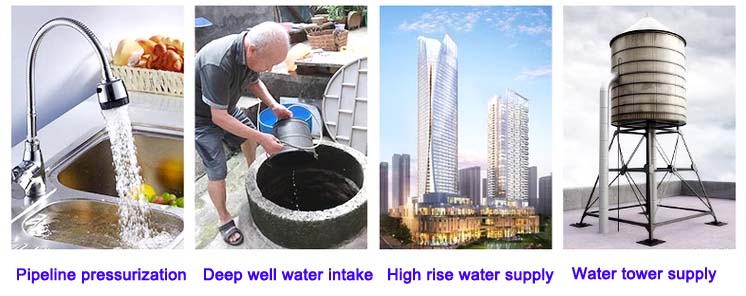Latin
- Afrikaans
- Albanian
- Amharic
- Arabic
- Armenian
- Azerbaijani
- Basque
- Belarusian
- Bengali
- Bosnian
- Bulgarian
- Catalan
- Cebuano
- Corsican
- Croatian
- Czech
- Danish
- Dutch
- English
- Esperanto
- Estonian
- Finnish
- French
- Frisian
- Galician
- Georgian
- German
- Greek
- Gujarati
- Haitian Creole
- hausa
- hawaiian
- Hebrew
- Hindi
- Miao
- Hungarian
- Icelandic
- igbo
- Indonesian
- irish
- Italian
- Japanese
- Javanese
- Kannada
- kazakh
- Khmer
- Rwandese
- Korean
- Kurdish
- Kyrgyz
- Lao
- Latin
- Latvian
- Lithuanian
- Luxembourgish
- Macedonian
- Malgashi
- Malay
- Malayalam
- Maltese
- Maori
- Marathi
- Mongolian
- Myanmar
- Nepali
- Norwegian
- Norwegian
- Occitan
- Pashto
- Persian
- Polish
- Portuguese
- Punjabi
- Romanian
- Russian
- Samoan
- Scottish Gaelic
- Serbian
- Sesotho
- Shona
- Sindhi
- Sinhala
- Slovak
- Slovenian
- Somali
- Spanish
- Sundanese
- Swahili
- Swedish
- Tagalog
- Tajik
- Tamil
- Tatar
- Telugu
- Thai
- Turkish
- Turkmen
- Ukrainian
- Urdu
- Uighur
- Uzbek
- Vietnamese
- Welsh
- Bantu
- Yiddish
- Yoruba
- Zulu
Telephone: +86 13120555503
Email: frank@cypump.com
Sep . 04, 2024 11:30 Back to list
sewage and effluent pumps
Understanding Sewage and Effluent Pumps An Essential Component of Modern Wastewater Management
Sewage and effluent pumps play a crucial role in managing wastewater, ensuring that sewage and effluent are efficiently transported from one location to another. As urban areas continue to grow, the need for effective wastewater management systems has become increasingly important. These pumps are essential in preventing blockages, managing overflow, and safeguarding public health by ensuring that sewage is treated and returned to the environment in a safe manner.
What are Sewage and Effluent Pumps?
Sewage pumps are designed specifically for pumping sewage, which includes not only water but also waste materials such as toilet paper, fats, oils, and other solids. These pumps are typically submersible, meaning they operate underwater within a sewage basin, helping to push the waste up to the treatment facility or a septic system. Effluent pumps, on the other hand, are used to move liquid waste that has already been partially treated in a septic system. Unlike sewage pumps, effluent pumps can handle smaller solids, typically up to 2 inches in diameter.
The Importance of Sewage and Effluent Pumps
1. Preventing Contamination One of the primary functions of sewage and effluent pumps is to prevent contamination of groundwater and surface water. By efficiently transporting wastewater to treatment facilities, these pumps minimize the risk of leaks and spills, which can lead to environmental pollution.
2. Enhancing System Efficiency In municipal and industrial settings, gravity alone is often insufficient to move wastewater through the system. Pumps are necessary to overcome elevation changes and maneuver through various pipes and channels. This efficiency is crucial for maintaining a reliable wastewater management infrastructure.
sewage and effluent pumps

3. Flood Control Heavy rainfall and flooding can overwhelm sewage systems, leading to overflows that pose health risks and damage property. Sewage pumps help manage stormwater by quickly removing excess water from basements, low-lying areas, and drainage systems, thereby reducing the risk of flooding.
4. Cost-Effectiveness Regular maintenance and timely replacement of sewage and effluent pumps can save municipalities and businesses considerable amounts of money by avoiding the expensive consequences of system failures, such as remediation costs and fines from regulatory bodies.
Choosing the Right Pump
When selecting a sewage or effluent pump, several factors should be considered
- Flow Rate The pump must be capable of handling the expected volume of wastewater. - Head Pressure This refers to the height the pump must lift the wastewater. Understanding the elevation changes in your system is vital. - Solid Handling Capability Depending on the application, you'll need to assess the size of solids the pump can handle. - Durability and Build Quality Pumps need to withstand harsh conditions and materials; materials like stainless steel or thermoplastic are often recommended.
Conclusion
Sewage and effluent pumps are indispensable in modern wastewater management systems, preventing environmental contamination and ensuring public health. As urbanization continues to rise, the demand for efficient and reliable sewage management technologies will only increase. Proper selection, installation, and maintenance of these pumps can make a significant difference in managing the complexities of wastewater, contributing to cleaner and safer communities. Understanding these systems and their impact highlights the importance of investing in and upgrading our wastewater infrastructure to meet future challenges.
-
Horizontal Split Case Pump with GPT-4 Turbo | High Efficiency
NewsAug.01,2025
-
ISG Series Pipeline Pump - Chi Yuan Pumps | High Efficiency, Durable Design
NewsAug.01,2025
-
Advanced Flue Gas Desulfurization Pump with GPT-4 Turbo | Durable & Efficient
NewsJul.31,2025
-
ISG Series Vertical Pipeline Pump - Chi Yuan Pumps | Advanced Hydraulic Design&Durable Construction
NewsJul.31,2025
-
ISG Series Vertical Pipeline Pump - Chi Yuan Pumps | Energy Efficient & Low Noise
NewsJul.31,2025
-
pipeline pump - Chi Yuan Pumps Co., LTD.|High Efficiency&Low Noise
NewsJul.31,2025










